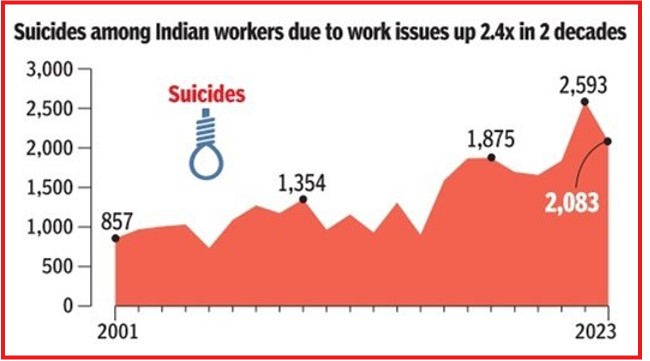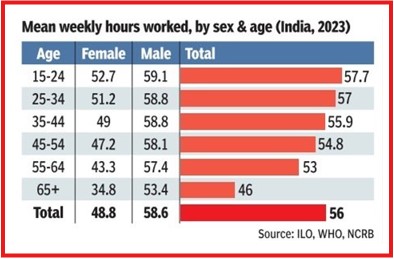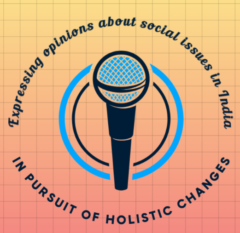
The tragic death of Anna Sebastian Perayil, a 26-year-old employee at Ernst & Young (E&Y) in Pune, has ignited a crucial conversation about the dangers of overwork in India’s corporate culture. Anna’s untimely passing, attributed to cardiac arrest linked to excessive work stress, highlights the alarming pressures faced by entry-level employees. This blog explores the glorification of overwork and emphasizes the necessity of work-life balance for healthier workplaces.
The Reality of Overwork in India
India has one of the longest working hours globally. According to the International Labour Organization, Indians work an average of 46.7 hours per week, significantly more than their American counterparts who average 38 hours. This relentless work culture pressures young professionals to sacrifice their health for career advancement. Anna’s story is a stark reminder of these dangers. She joined E&Y in March 2024 and experienced overwhelming stress within just four months, leading to her tragic death on July 20, 2024.
Anna’s Struggles: A Case Study
Anna’s mother, Anita Augustine, revealed that her daughter faced extreme pressure at work. She often called home in tears, expressing anxiety and exhaustion from her workload. Despite voicing her concerns to the management, Anna received little support. Her story resonates with many young professionals who feel trapped in a cycle of overwork without adequate mental health resources or understanding from their employers.
In her letter to E&Y’s leadership, Anita emphasized that the company must reconsider its work culture. She stated, “This issue isn’t just about Anna; it’s about the unrealistic pressures faced by many young IT professionals today.” Such sentiments reflect a broader societal issue where overexertion is often seen as a badge of honor rather than a risk factor for serious health problems.
Statistics Highlighting the Crisis
To understand the gravity of this situation, consider the following statistics:
- 49% of India’s workforce clocks over 49 hours each week.
- The country ranks second globally for longest working hours, trailing only Bhutan.
- Mental health issues related to workplace stress are on the rise; 75% of employees report feeling stressed at work.
These figures illustrate a pressing need for change within corporate environments and underscore the importance of work-life balance.



The Impact of Corporate Culture on Health
The “hustle culture” prevalent in many Indian firms often glorifies long hours and constant availability. This mindset can lead to severe consequences for employees’ physical and mental health. Experts warn that prolonged exposure to high stress can result in burnout, anxiety disorders, and even chronic illnesses like heart disease.
Anna’s case is not isolated; numerous reports highlight similar experiences among young professionals across various sectors. Many employees feel compelled to work late into the night or during weekends to meet unrealistic deadlines. This toxic environment fosters a culture where taking time off or prioritizing personal well-being is frowned upon.
Revisiting Work-Life Balance
To combat this issue, it is essential to redefine what success looks like in the corporate world. Success should not solely be measured by hours worked or projects completed but also by personal well-being and job satisfaction. Companies must prioritize work-life balance as a core value rather than an afterthought.
Practical Steps for Change
Organizations can take several steps to foster a healthier work environment:
- Implement Flexible Work Hours: Allow employees to choose their working hours based on their personal needs.
- Encourage Regular Breaks: Promote short breaks throughout the day to help employees recharge.
- Offer Mental Health Resources: Provide access to counseling services and mental health days.
- Foster Open Communication: Create an environment where employees feel safe discussing their workload without fear of repercussions.
By adopting these practices, companies can create a more supportive atmosphere that values employee well-being.
Conclusion: A Call for Holistic Changes
The death of Anna Sebastian Perayil serves as a wake-up call for corporate India. It underscores the urgent need to address the glorification of overwork and its detrimental effects on young professionals. To ensure that no other family endures such heartbreak, we must advocate for systemic changes within organizations.
Reevaluating our definition of success is crucial. A balanced approach that prioritizes both professional achievement and personal well-being can lead to healthier workplaces and happier employees. As we move forward, let us strive for a corporate culture that values people over productivity—a culture where success is redefined through balance and respect for individual health.
By embracing these changes and focusing on work-life balance, we can create a future where this concept is not just an ideal but a reality for all employees in India.

The more this message of injustice is spread, the stronger our voices permeate through the corporate walls. It is crucial that all employees stand together and speak up when they see unfair practices.
Thank you, Anita for voicing your opinion on this social evil engulfing corporate circles. Let’s hope that Anna’s death leads to holistic changes that are incorporated with regards to employee well-being and a better work-life balance, with special emphasis on the mental health of employees.